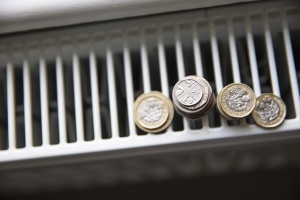Contact: Anna Cook, Head of Communications | anna.cook@nea.org.uk | 07884 371913
- The energy regulator Ofgem has just confirmed average energy bills for Direct Debit and Standard Credit customers across Britain could soon reach up to £1971, an increase of over 54% compared to bills today.
- The mammoth rises are even higher for over 4.5 million customers on prepayment meters, up to £2,017, an increase of over £708 compared to bills today despite many of these customers already being in severe debt.
- Fuel poverty charity National Energy Action (NEA) says soaring increases mean the cost of heating an average home will have doubled in 18 months. Numbers in fuel poverty will also soar from 4 million to 6.5 million households across the UK in six months from October 2021 to April 2022.
- The UK Government has announced a ‘rebate and clawback’ scheme with energy suppliers provided with loans to provide rebates of £200 to each household which will need to be paid pack in years to come. Some additional support via Council Tax rebates has also been pledged.
- With a gap of over £500 for people on prepayment per year between the October 2021 and April 2022 increases and the new energy crisis measures, NEA warns the government’s proposals are woefully inadequate and will not avert devastation to health, wealth and wellbeing’ for millions of the poorest households.
Adam Scorer, Chief Executive of National Energy Action (NEA) says:
“These energy crisis measures are woefully inadequate and will leave those on the lowest incomes and in the least efficient homes in deep peril.
“Government had an exam question: How to protect the most vulnerable from a devastating rise in the cost of energy? While their plans are not without merit, they fail this test by turning away from targeted measures to help the poorest energy consumers.
“We needed deep, targeted support for the most vulnerable. We have shallow, broad measures for all. That simply does not work.
“The depth of support is not proportionate to the increases. A household paying by prepayment will still have a £500 increase when you take into account rises from October 2021 and April 2022. The rebates on Bills and Council tax are not sufficiently targeted, too small and too complex.
“We expect the government will have no choice but to return to the issue of spiralling fuel poverty and another price rise later this year. By then they’ll be playing catch-up and great harm will already have been done. We need a more coherent plan we are going to ensure the poorest can stay warm this winter and next.”
NEA had hoped to see a much more comprehensive plan which directly sought to deliver on Prime Minister Boris Johnson’s and Chancellor Rishi Sunak’s stated aims to mitigate rising energy prices for the poorest energy customers. NEA’s proposals would provide targeted relief and would be funded via HMT, using some of the large windfall that it has accrued during the energy crisis.
ENDS
Notes to editors
- For further details please contact anna.cook@nea.org.uk or 07884 371913.
- National Energy Action (NEA) works across England, Wales and Northern Ireland to ensure that everyone in the UK can afford to live in a warm, safe home. For more information visit www.nea.org.uk/energy-crisis.
- Last winter Public Health England (PHE) warned there is a damaging overlap between the health impacts of living in a cold home and Covid-19. Pre-existing chronic medical conditions such as cardiovascular and respiratory conditions, such as chronic obstructive pulmonary disease (COPD), asthma and heart disease are particularly badly affected by a cold home.
- In recent months NEA has been working alongside other consumer groups, officials and advisors to identify policy options to mitigate rising energy prices for the poorest energy customers. Our briefing highlights the options to reduce prices for vulnerable consumers and the possible benefits they would have for different low-income households. See HERE
- NEA estimates that when prices increased in October 2021, following the increase to the GB price cap, this generated HMT an additional £100m per year more VAT on domestic electricity and gas bills. Ofgem’s announcement increases push the VAT windfall up further and will increase VAT yields by in excess of £700 million per year. The amount of revenue Treasury receives from carbon revenue has also grown during the gas crisis, in addition to the £3 billion they were already due to receive for this year, the rising cost of permits/more volume of permit is netting HMT a further £1 billion until the end of April.























